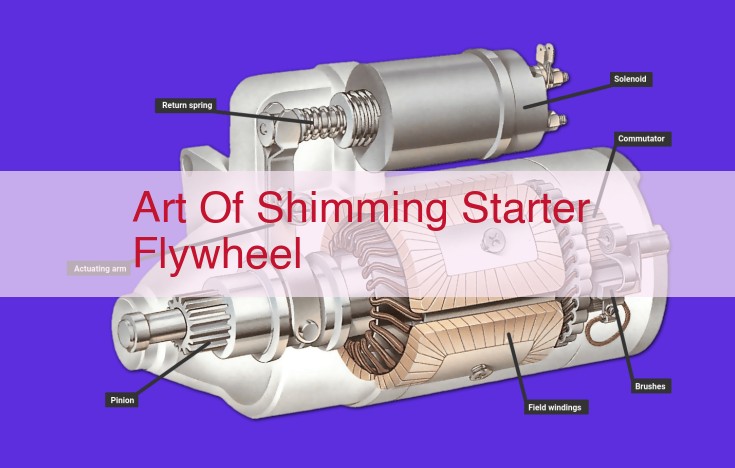Deteriorating spark plugs can lead to a cascade of engine issues, including premature wear, fouling, and misfires, which negatively impact engine performance. Worn-out electrodes, fouled plugs, and misfires can cause decreased fuel efficiency, increased emissions, engine overheating, and poor acceleration. Regular maintenance and timely replacement are crucial to prevent these problems and ensure optimal engine health.
Premature Spark Plug Deterioration: Causes of premature wear, including worn-out electrodes, fouled plugs, and misfires.
Premature Spark Plug Deterioration: Causes and Consequences
Your car’s spark plugs play a crucial role in igniting the air-fuel mixture in the engine’s cylinders. Properly functioning spark plugs ensure a smooth and efficient engine operation. However, premature spark plug deterioration can lead to a variety of engine problems.
One common cause of premature spark plug deterioration is worn-out electrodes. The electrodes are the two metal tips of the spark plug that create the spark. Over time, these electrodes can become worn down, reducing the spark’s intensity and making it more difficult to ignite the air-fuel mixture. This can lead to premature plug wear, fouling, and misfires.
Another cause of premature spark plug deterioration is fouling. Fouling occurs when deposits, such as carbon or oil, build up on the spark plug’s electrodes. This can prevent the spark from jumping the gap between the electrodes, leading to misfires and reduced engine performance.
Misfires are another symptom of premature spark plug deterioration. Misfires occur when the spark plug fails to ignite the air-fuel mixture in the cylinder. This can cause the engine to run rough, hesitate, or even stall. Misfires can also damage the engine’s catalytic converter and increase emissions.
Premature spark plug deterioration can have a significant impact on engine performance. Misfires can cause the engine to run rough, hesitate, or even stall. Fouled spark plugs can lead to reduced fuel efficiency and increased emissions. In addition, worn-out electrodes can cause poor acceleration and engine overheating.
If you suspect that your spark plugs are prematurely deteriorating, it’s important to have them inspected and replaced as soon as possible. Replacing spark plugs is a relatively inexpensive and easy way to improve engine performance and prevent more serious problems down the road.
Worn-Out Electrodes: The Road to Premature Spark Plug Deterioration
Your spark plugs, the unsung heroes of your vehicle’s engine, face a formidable challenge every day: igniting the fuel-air mixture that powers your journey. However, over time, these crucial components can succumb to wear and tear, with worn-out electrodes taking center stage in the drama of premature spark plug deterioration.
The Perils of Premature Plug Wear
Imagine your spark plugs as tiny lightning rods, channeling electricity through their electrodes to create the spark that ignites your engine. With extended use, these electrodes can lose their sharp edges, diminishing their ability to generate a strong spark. This premature plug wear leads to a weakened ignition process, potentially resulting in misfires and engine performance issues.
Fouling: A Clogged Artery of Combustion
As the electrodes deteriorate, fouling becomes a sinister companion. Carbon deposits, unburned fuel, and other contaminants accumulate on the spark plugs, further impeding the spark formation. This buildup acts like a clogged artery in your engine, hindering the smooth flow of combustion. The consequences? Misfires and reduced engine efficiency.
Misfires: The Stumbling Blocks of Engine Health
Misfires are akin to hiccups in your engine’s performance. When spark plugs struggle to ignite the fuel-air mixture, combustion fails to occur in one or more cylinders. This leads to a noticeable drop in power, increased emissions, and a rough idle. Repeated misfires can ultimately damage your engine’s components, casting a pall over its reliability.
Fouled Spark Plugs: Detrimental Effects on Engine Performance
In the intricate symphony of an engine, spark plugs play a pivotal role in initiating the combustion process. However, these unassuming components can succumb to a condition known as fouling, which significantly impairs engine performance. Understanding the causes and consequences of fouled spark plugs is crucial for maintaining optimal engine health.
Causes of Spark Plug Fouling
Fouling occurs when deposits accumulate on the spark plug’s firing end, hindering its ability to generate a spark. The culprits of this deposition can be threefold:
1. Premature Wear
As spark plugs endure countless ignition cycles, their electrodes gradually erode. This wear can create gaps between the electrodes, making it harder for the spark to bridge the gap and ignite the air-fuel mixture.
2. Worn Electrodes
Excessive wear can lead to worn electrodes, which further compromises the spark’s intensity and reliability. Worn electrodes can cause misfires, where combustion fails to occur in one or more cylinders.
3. Misfires
Misfires, in turn, can contribute to spark plug fouling. Unburned fuel and combustion byproducts collect on the spark plug, gradually building up deposits and further exacerbating the problem.
Impact on Engine Performance
Fouled spark plugs have a detrimental impact on engine performance:
1. Misfires
Fouling impedes spark generation, leading to misfires. Misfires not only disrupt the engine’s smooth operation but also send unburned fuel into the exhaust system, potentially damaging the catalytic converter.
2. Reduced Fuel Efficiency and Increased Emissions
Misfires result in incomplete fuel combustion, reducing fuel efficiency and increasing tailpipe emissions. Fouled spark plugs can also disrupt the engine’s air-fuel ratio, further exacerbating these problems.
3. Engine Overheating and Poor Acceleration
Severely fouled spark plugs can cause engine overheating as the misfiring cylinders generate excessive heat. Poor acceleration is another telltale sign of fouled plugs, as the engine struggles to maintain its power output.
Fouled spark plugs can have a significant impact on an engine’s performance, affecting everything from fuel efficiency to acceleration. By understanding the causes and consequences of spark plug fouling, motorists can proactively identify and resolve this issue, ensuring that their engines continue to perform optimally.
Misfires: Reasons for misfires, including premature wear, worn electrodes, fouled plugs, and ignition problems, and their detrimental effects on engine health.
Misfires: The Detrimental Effects on Engine Health
Misfires occur when the spark plug fails to ignite the air-fuel mixture in the engine’s combustion chamber. This can be a major problem, as it leads to a host of issues that can damage the engine and reduce its performance.
There are several reasons why misfires can occur, including:
- Premature wear of the spark plugs: Worn-out electrodes can no longer create a strong enough spark to ignite the air-fuel mixture.
- Fouled spark plugs: Fouling can occur when carbon or other debris builds up on the spark plugs, hindering their ability to create a spark.
- Ignition problems: Issues with the ignition system, such as a weak spark or a faulty ignition coil, can also cause misfires.
Misfires can have a number of detrimental effects on engine health, including:
- Increased emissions: Misfires can cause unburned fuel to be released into the exhaust system, increasing emissions.
- Reduced fuel efficiency: Misfires can lead to a decrease in fuel efficiency, as the engine is not able to burn all of the fuel.
- Engine damage: Severe misfires can cause damage to the engine’s pistons, valves, and other components.
If you suspect that your engine is misfiring, it’s important to have it diagnosed and repaired as soon as possible. Misfires can be a serious problem, but they can usually be resolved relatively easily and inexpensively.
Engine Performance Issues: The Impact of Deteriorated Spark Plugs
Spark plugs play a crucial role in the ignition process of an engine. Over time, spark plugs can deteriorate, leading to a range of performance issues.
Misfires: The Telltale Sign of Trouble
When spark plugs deteriorate, they may fail to produce a strong enough spark, resulting in misfires. These occur when the air-fuel mixture in the combustion chamber fails to ignite properly. Misfires can cause a noticeable rough idle, hesitation during acceleration, and reduced engine power. If left unchecked, misfires can damage the catalytic converter and lead to other costly repairs.
Reduced Fuel Efficiency and Increased Emissions
Fouled spark plugs or misfires can disrupt the combustion process, resulting in incomplete combustion of the air-fuel mixture. This can lead to increased tailpipe emissions and reduced fuel efficiency. As the car’s engine works harder to overcome the resistance caused by misfires, it consumes more fuel than necessary.
Engine Overheating and Poor Acceleration
Spark plugs that are not functioning properly can also contribute to engine overheating. When misfires occur, unburned fuel can accumulate in the exhaust manifold, raising its temperature. Additionally, the engine may experience poor acceleration due to the reduced power output caused by misfires.
Addressing Spark Plug Issues
To ensure optimal engine performance, it’s crucial to replace spark plugs at the manufacturer’s recommended intervals. Regular maintenance and inspections can help identify worn-out or fouled spark plugs early on, preventing more severe issues down the road. By addressing spark plug deterioration promptly, you can maintain peak engine performance, improve fuel efficiency, reduce emissions, and extend the life of your vehicle.
How Fouled Spark Plugs and Misfires Wreak Havoc on Fuel Efficiency and Emissions
Your car’s spark plugs play a crucial role in its performance. They generate the spark that ignites the fuel-air mixture in your engine’s cylinders, enabling it to run smoothly. However, when spark plugs become fouled or deteriorate prematurely, it can lead to a cascade of problems, including reduced fuel efficiency and increased emissions.
Fouled Spark Plugs: A Fuel-Wasting Culprit
Fouled spark plugs occur when combustion byproducts, such as carbon deposits, build up on the electrodes. This buildup disrupts the spark’s path, causing misfires and incomplete combustion. As a result, the engine struggles to burn fuel efficiently, leading to lower fuel economy.
Misfires: A Double Whammy for Emissions
Misfires, when the spark plug fails to ignite the fuel-air mixture, have a double-edged impact on emissions. Firstly, they produce unburnt hydrocarbons that escape into the atmosphere, contributing to smog formation. Secondly, misfires disrupt the engine’s combustion process, resulting in higher emissions of carbon monoxide and nitrogen oxides (NOx), two harmful pollutants.
The Vicious Cycle: Fouled Plugs, Misfires, and More
Fouled spark plugs and misfires often perpetuate a vicious cycle. Fouled plugs can lead to misfires, which further foul the plugs. This ongoing deterioration exacerbates fuel inefficiency and emissions, creating a snowball effect that can significantly impact your car’s performance and the environment.
Neglecting Spark Plug Health: A Costly Mistake
Regular spark plug maintenance is essential to ensure optimal fuel efficiency and emissions control. Ignoring spark plug health can result in a range of problems, including:
- Lower fuel economy and increased fuel costs
- Higher emissions, harming the environment and potentially leading to fines
- Premature engine wear and reduced performance
- Increased risk of engine damage
Protect Your Engine and the Environment: Prioritize Spark Plug Health
Maintaining your spark plugs in good condition is a cost-effective way to improve your car’s performance and minimize its environmental impact. Regular inspections and replacements can prevent premature deterioration, fouling, and misfires, ensuring optimal fuel efficiency and emissions control. By prioritizing spark plug health, you protect your engine, save money on fuel, and contribute to a cleaner environment.
Engine Overheating and Poor Acceleration: The Hidden Connection
When your car’s engine overheats, it’s not always just a cooling system issue. Sometimes, the culprit lies in an often-overlooked component: spark plugs.
Spark plugs are responsible for igniting the air-fuel mixture in your engine, creating the combustion that powers your car. But when spark plugs become degraded, they can fail to generate a strong enough spark, leading to misfires. These misfires disrupt the combustion process, causing a chain reaction of problems:
- Reduced Engine Power: Misfires effectively reduce the number of cylinders producing power, lowering engine output and acceleration.
- Increased Air Pollution: Unburned fuel escapes through the exhaust, contributing to higher emissions.
- Deteriorated Fuel Efficiency: Incomplete combustion wastes fuel, reducing your car’s mileage.
- Engine Overheating: The excess heat generated by misfires can overtax the cooling system, leading to engine overheating.
To prevent these issues, it’s crucial to replace spark plugs regularly as per your vehicle’s manufacturer recommendations. By ensuring optimal spark plug performance, you not only maintain _smooth engine operation and acceleration_ but also protect your engine from potential overheating and costly repairs.




